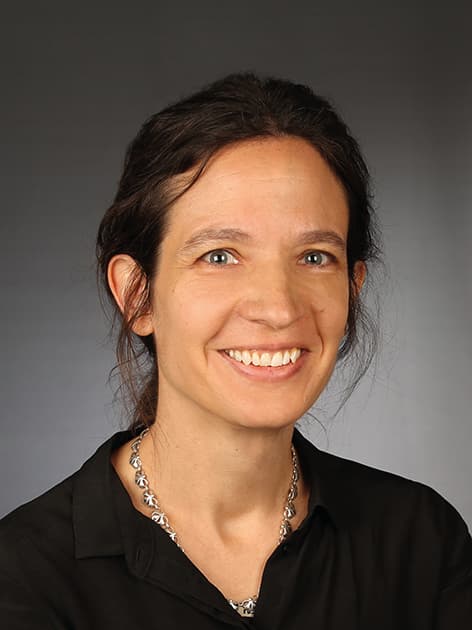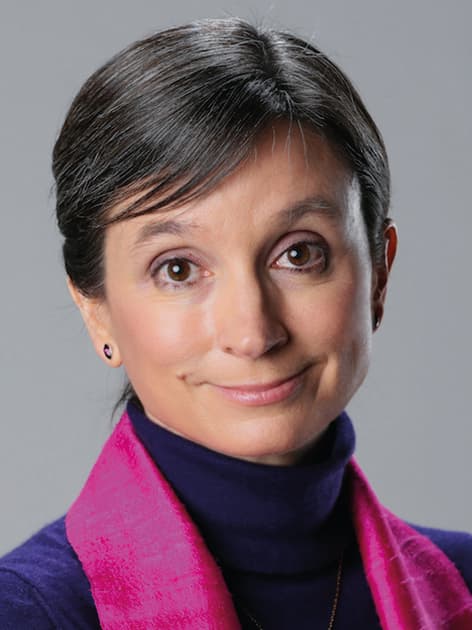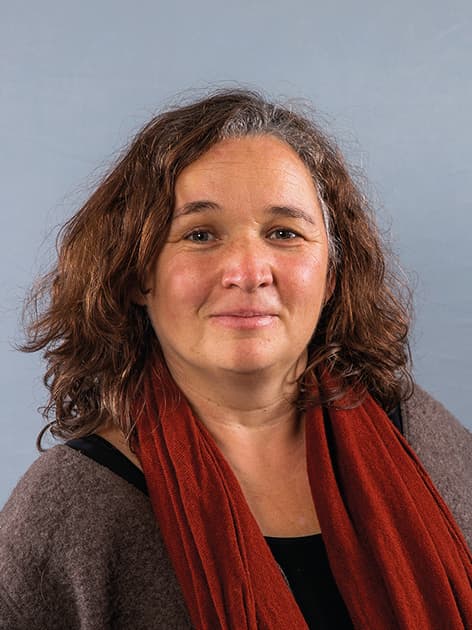All rights reserved.
Karin Baur has been a full professor in the School of Mathematics of the University of Leeds, UK, since 2018. She obtained her PhD in 2002 in Mathematics from the University of Basel, Switzerland. She held an SNF Professorship at the ETH from 2007 to 2011, and since 2011 she has been a full professor at the Department of Mathematics of the University of Graz, Austria (from which she is currently on leave). In 2018 she obtained a Wolfson Fellowship from the Royal Society.
Her research interests lie in algebraic, geometric and combinatorial methods in representation theory, including cluster algebras, cluster categories, module categories, frieze patterns, surface algebras, triangulations and tilings.
She is a member of the scientific committee for the Centre International de Rencontres en Mathématiques, France, and the standing committee of European Women in Mathematics, as well as an editorial advisor for the LMS journals and an editor for the Springer Lecture Notes in Mathematics. Her webpage is www1.maths.leeds.ac.uk/~pmtkb/.
All rights reserved.
Kathryn Hess is a professor of mathematics and life sciences at the Ecole Polytechnique Fédérale de Lausanne (EPFL). She received her PhD from MIT in 1989 and held postdoctoral positions at the universities of Stockholm, Nice, and Toronto before moving to the EPFL.
Her research focuses on algebraic topology and its applications, primarily in the life sciences, but also in materials science. She has published extensively on topics in pure algebraic topology including homotopy theory, operad theory, and algebraic K-theory. On the applied side, she has elaborated methods based on topological data analysis for high-throughput screening of nanoporous crystalline materials, classification and synthesis of neuron morphologies, and classification of neuronal network dynamics. She has also developed and applied innovative topological approaches to network theory, elaborating a mathematical framework relating the activity of a neural network to its underlying structure, both locally and globally.
She is one of the managing editors of Algebraic and Geometric Topology and on the editorial board of Communications of the American Mathematical Society, the Journal of Applied and Computational Topology, Network Neuroscience, Publicacions Matemàtiques, and Theory and Applications of Categories.
In 2016 she was elected to the Swiss Academy of Engineering Sciences and was named a fellow of the American Mathematical Society and a distinguished speaker of the European Mathematical Society in 2017.
All rights reserved.
Susanne Prediger has been a full professor for mathematics education research at TU Dortmund University in Germany since 2006, and part-time at the German Center for Mathematics Teacher Education (DZLM) at the Leibniz-Institute for Science and Mathematics Education since 2021. She received her PhD in mathematical logic in Darmstadt (in 1998, under the supervision of Rudolf Wille), and a habilitation in mathematics education research in Klagenfurt in 2004.
In Germany, she led the joint commission on teacher education between the mathematics association (DMV) and the mathematics education association (GDM), so she is experienced in maintaining contact between the two disciplines.
She was the president of the European Society for Research in Mathematics Education (ERME) from 2017 to 2021. She is an editor of Educational Studies in Mathematics (ESM) and a member of the executive committee of International Commission on Mathematical Instruction (ICMI-EC).
As a new editor of the EMS magazine, she will focus on the section about mathematics education. Her homepage is www.mathematik.uni-dortmund.de/~prediger/english.html.



